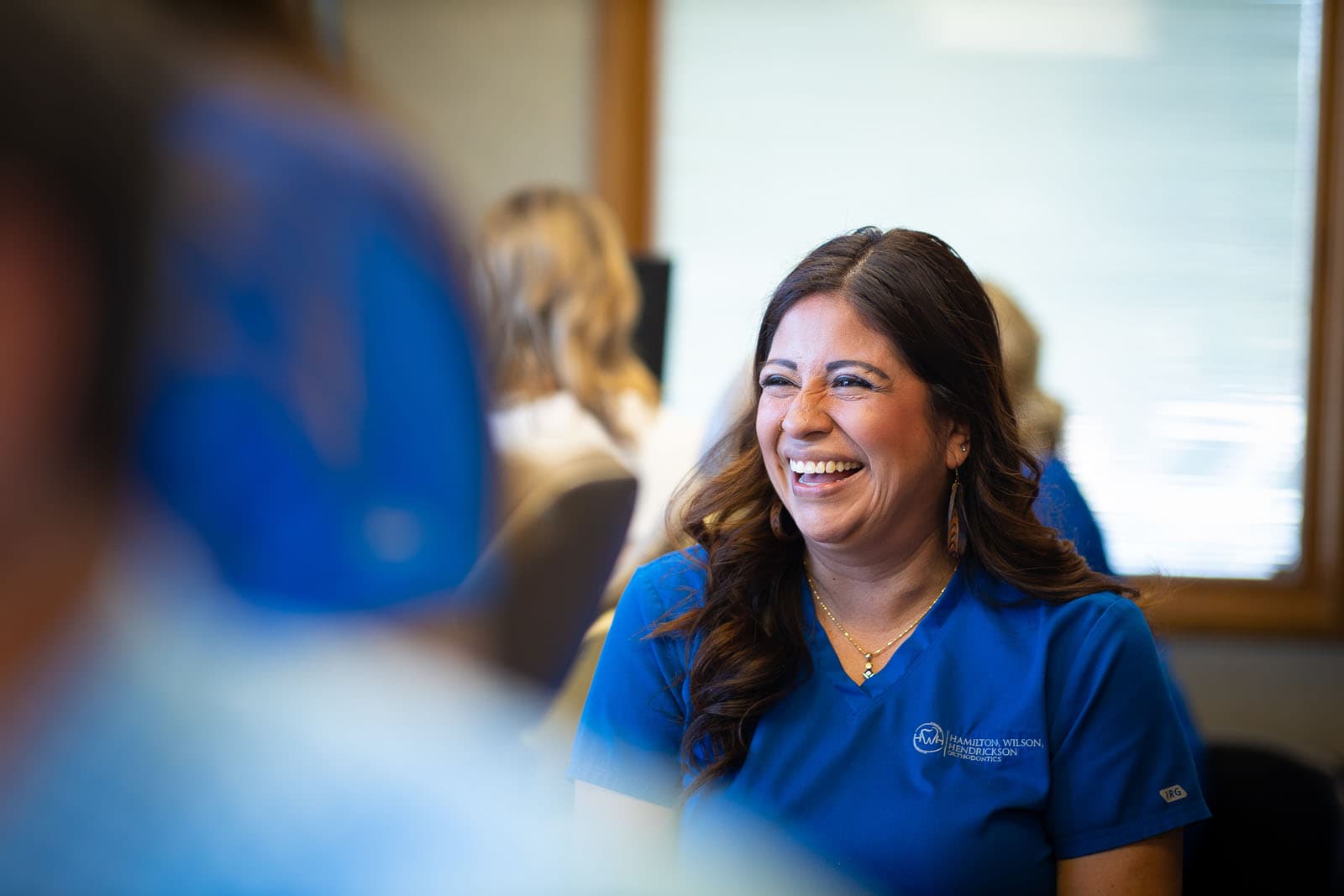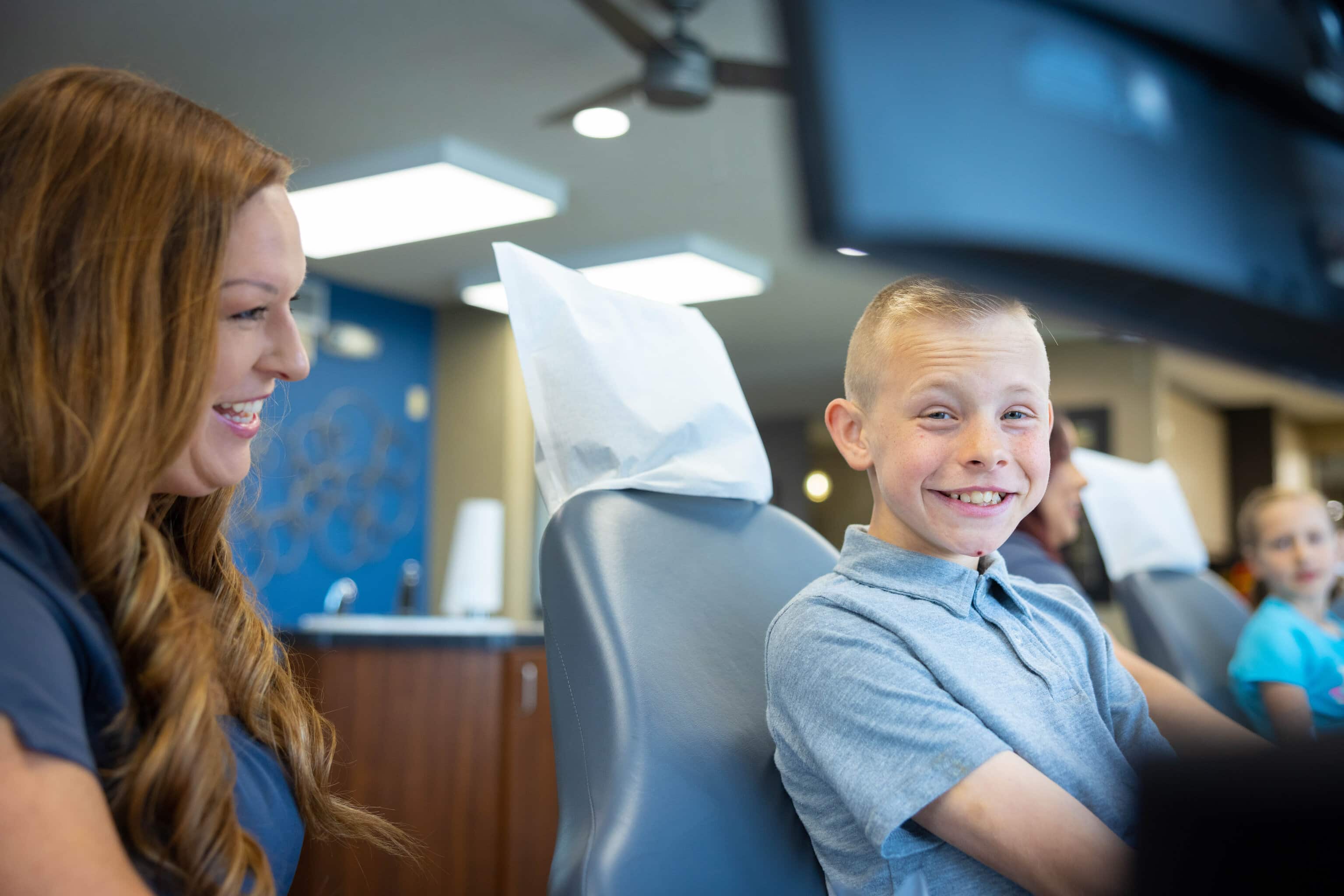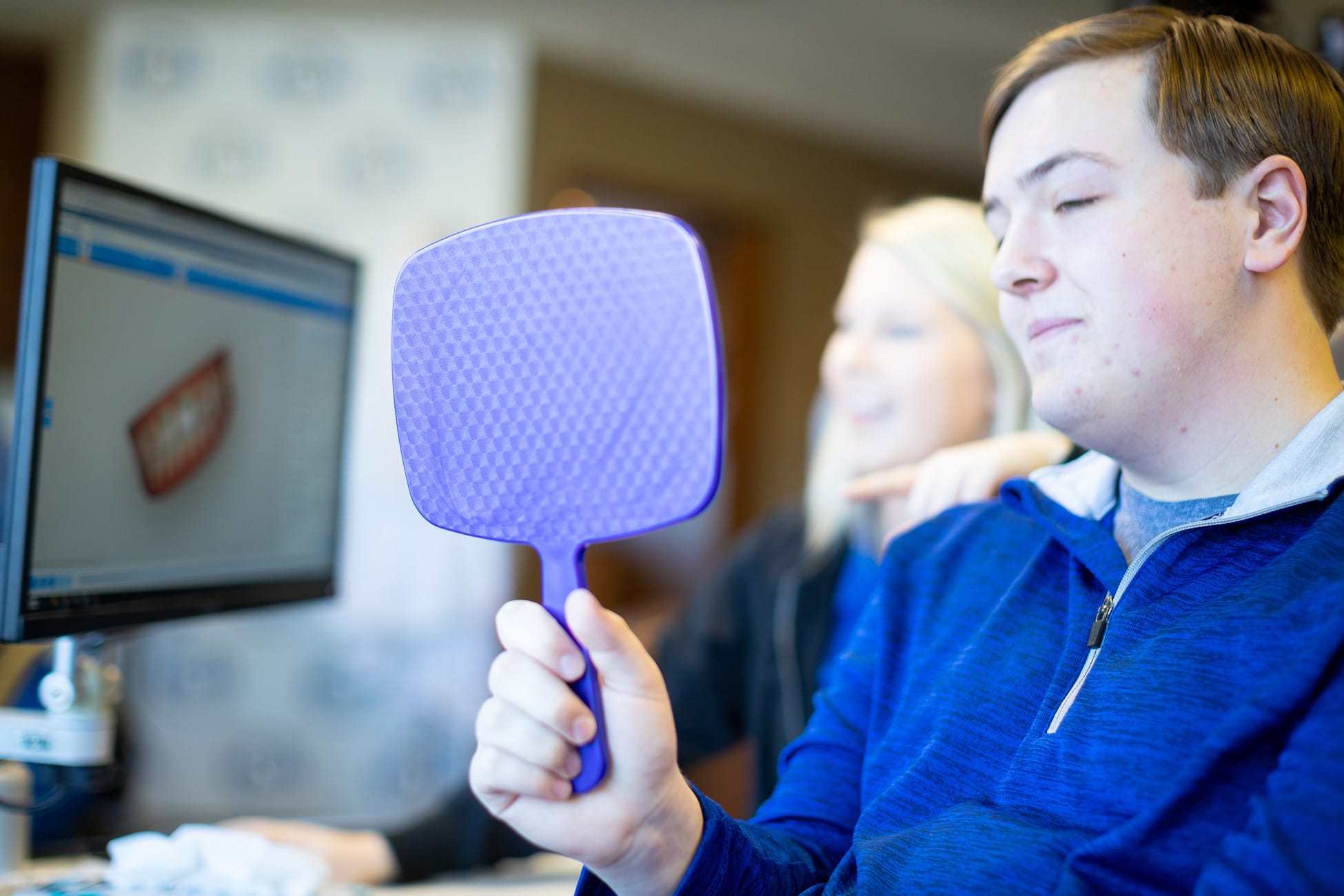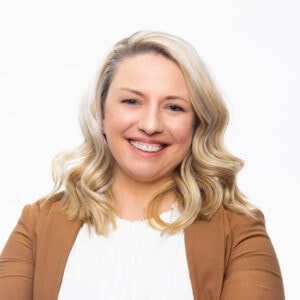We all know that brushing and flossing are the best way to keep your teeth and gums nice and healthy. But it never hurts to give those great tools a little extra boost. Your favorite mouthwash can do just that! Not only will it freshen your breath, but the fluoride in most mouthwashes will work to strengthen the enamel on your teeth and reduce your chances of tooth decay — if you use mouthwash correctly.
The Wilson & Hendrickson Orthodontics team encourages its patients in Topeka, KS to use the best tools necessary to keep their teeth healthy, from the right toothbrush to annual dental cleanings. Mouthwash is a great tool for our patients because it can be used easily with braces and Invisalign. You need to know certain facts to get the most out of your mouthwash. Here are five facts you may not know about mouthwash.

When to Use Mouthwash
Many people think you can use mouthwash anytime, and that’s technically true. But to get the most out of your mouthwash, you need to use it at a certain time. What you do after using the mouthwash is also important.
When Do I Use Mouthwash?
Most people think they should use mouthwash right after brushing, but this isn’t the case. Your toothpaste puts a fluoride coating on your teeth, and the mouthwash can wipe it off again. The National Health Service recommends picking a different time to use mouthwash, such as a couple of hours after brushing. That way, you can get the most out of your mouthwash AND your toothpaste!
How Often Should You Use Mouthwash?
It’s recommended that you use mouthwash at least twice a day for maximum effects. If you’re using a fluoride mouthwash, wait at least 30 minutes before eating or drinking. That’s because it takes some time for the fluoride to be absorbed into the enamel to strengthen it. After 30 minutes, you should be good to go! Just remember not to overuse your mouthwash or swallow it because it can be harmful.

Can Mouthwash Replace Brushing?
Some people believe a good swish of mouthwash can make up for not brushing or flossing. Noooooo — you need to brush and floss. Let’s examine why.
Is Mouthwash Enough in the Morning?
Mouthwash may be enough to wake you in the morning, but it’s not enough to clean your mouth the way it should be cleaned. As you sleep, plaque and bacteria build up and need to be cleaned off your teeth and gums. While mouthwash can reduce these, you really need to brush the plaque off your teeth for a thorough cleaning. Otherwise, the plaque can build up and become tartar. It can also lead to tooth decay.
Can You Brush Your Teeth With Mouthwash?
It’s probably happened at least once: You’re running late, you realize you’ve forgotten to brush your teeth, and you just don’t have time. So you grab the mouthwash, give it a few swishes, and you’re good to go, right?
Sorry, but no. Mouthwash does not equal tooth-brushing. While mouthwash can help eliminate bacteria in the mouth, it does little to scrub the plaque that has built up on your teeth and gums overnight. Toothpaste has abrasive qualities that scrub the plaque from your teeth, and your toothbrush removes that plaque. So you can use mouthwash in the morning, but make time to brush and floss as well.

Can Mouthwash Expire?
It’s an odd thing to think about — can your mouthwash expire? Actually, it can. When it expires often depends on the type of mouthwash you’re using.
Cosmetic Mouthwash
A “cosmetic” mouthwash refers to one that just masks bad breath. It usually doesn’t contain any minerals or fluoride that can help eliminate bacteria or plaque from your mouth. It also can be found on the shelves of major retailers. It’s not controlled by the FDA, either, but it should still have an expiration date. The longer it sits, the less effective it will be, but as it just freshens breath, technically, it can still be used. Can you use expired mouthwash? Yes, but it may get pretty gross after a while, though. It might be a good idea to replace it.
Therapeutic Mouthwash
These mouthwashes contain specific ingredients to perform a specific function, such as strengthening enamel or preventing dry mouth. They may contain fluoride, essential oils, peroxide, chlorhexidine, cetylpyridinium chloride, or other ingredients regulated by the FDA. These mouthwashes will have an expiration date, which will let you know when the active ingredients will start to lose their effectiveness. You should replace the mouthwash once it has expired.
How Long Does Mouthwash Last?
Mouthwash should be stored in a cool, dark place to maintain effectiveness. It can last a couple of years if you store it properly. However, the longer it goes, the less effective it becomes. So it’s a good idea to replace it after a couple of years if you don’t use it all by then.

When Mouthwash Burns, Is It Killing Germs?
Mouthwash may leave you with minty fresh breath, but it may be a bit tingly getting there. Is that a good thing or a bad thing? Usually, it’s a good thing. Let’s find out why your mouthwash tingles.
Why Do My Mouth and Tongue Burn When I Use Mouthwash?
Your mouthwash usually has that “burn” feeling because of the alcohol in it, which works as an antiseptic to eliminate bacteria from your mouth. You need to swish the mouthwash around in your mouth for at least 30 seconds for it to be effective. It may feel a bit odd, but you’ll end up with less bacteria and fresh breath. Alcohol is often the main active ingredient in mouthwash, so most will give you that tingly feeling. In some mouthwashes, such as mint ones, menthol may also be used.
If the tingling or burning sensation becomes painful, spit it out and rinse your mouth immediately, but do not swallow. It’s rare to have an allergy to alcohol or menthol, but it’s possible. Always check the label to see if any ingredients will trigger known allergies.
Is an Alcohol-Free Mouthwash Better?
Alcohol-free mouthwash is available to those who prefer not to have alcohol in their mouthwash because of allergies or because they find regular mouthwash is just too harsh. Most major brands offer alcohol-free versions, so just check the labels.

Benefits of Mouthwash
Brushing and flossing are the primary tools of great oral care, but mouthwash can supplement those tools. Mouthwash can reach areas your toothbrush or floss may not have reached, particularly between teeth. This is especially true for patients with braces, as the mouthwash can easily get around brackets and under wires. It reduces the bacteria that form plaque on your teeth, which reduces tartar, a hard, crusty plaque buildup.
The mouthwash can reduce your chances of tooth decay. It also can keep your mouth moist and your breath fresh, at least temporarily. If you have persistent dry mouth or bad breath, check with your dentist or doctor. They may be signs of other issues or related to medications you’re taking.

Maintaining Great Oral Hygiene With Mouthwash
Mouthwash is a great tool for oral health care. Whether you’re in braces or Invisalign, mouthwash has several benefits that can help keep your teeth healthy while you complete your treatment. If you’re interested in treatment, Wilson & Hendrickson Orthodontics is here to help! Get started by requesting an evaluation, and we’ll guide you through the process. We’ll also answer your questions on keeping your mouth healthy with mouthwash!









